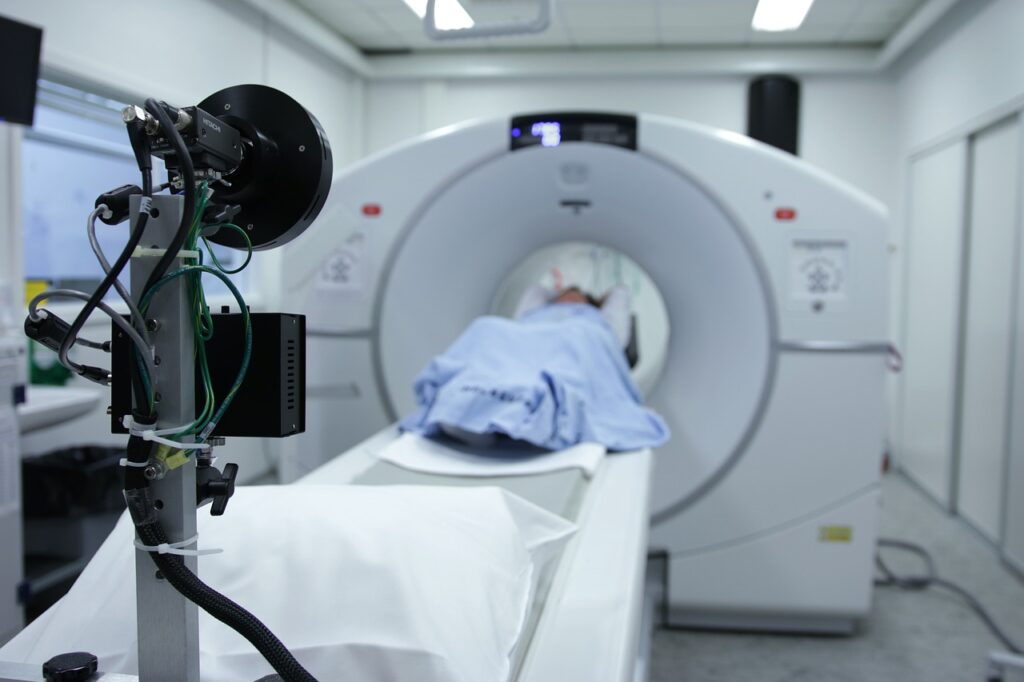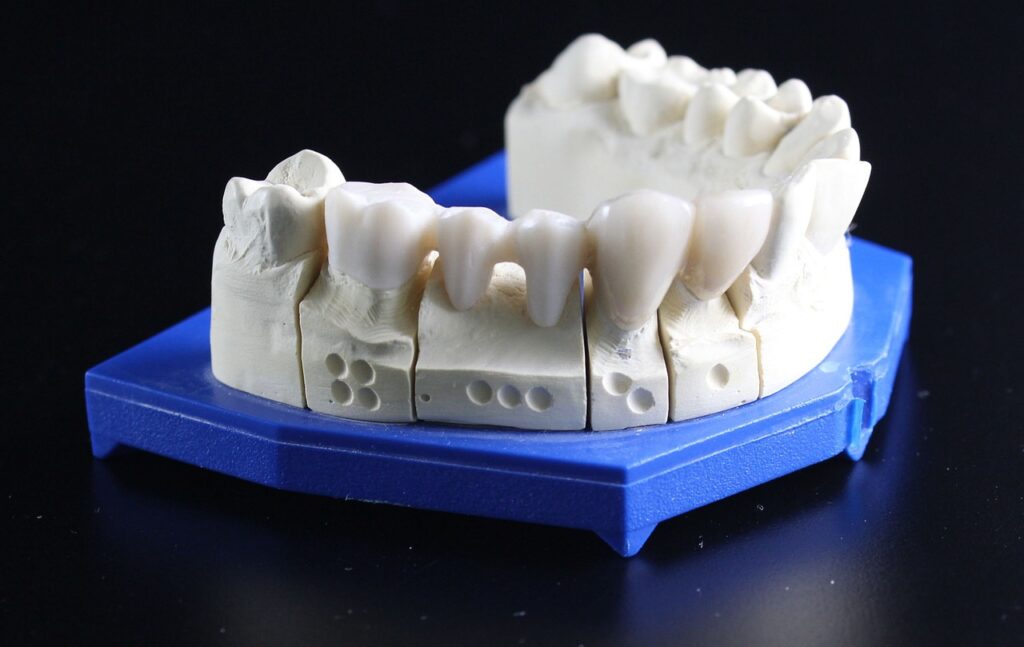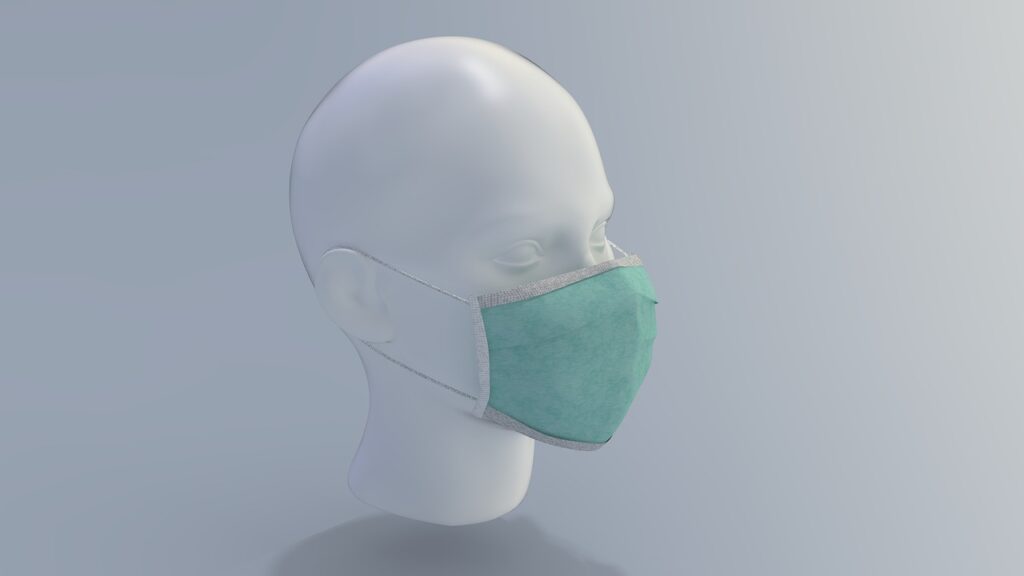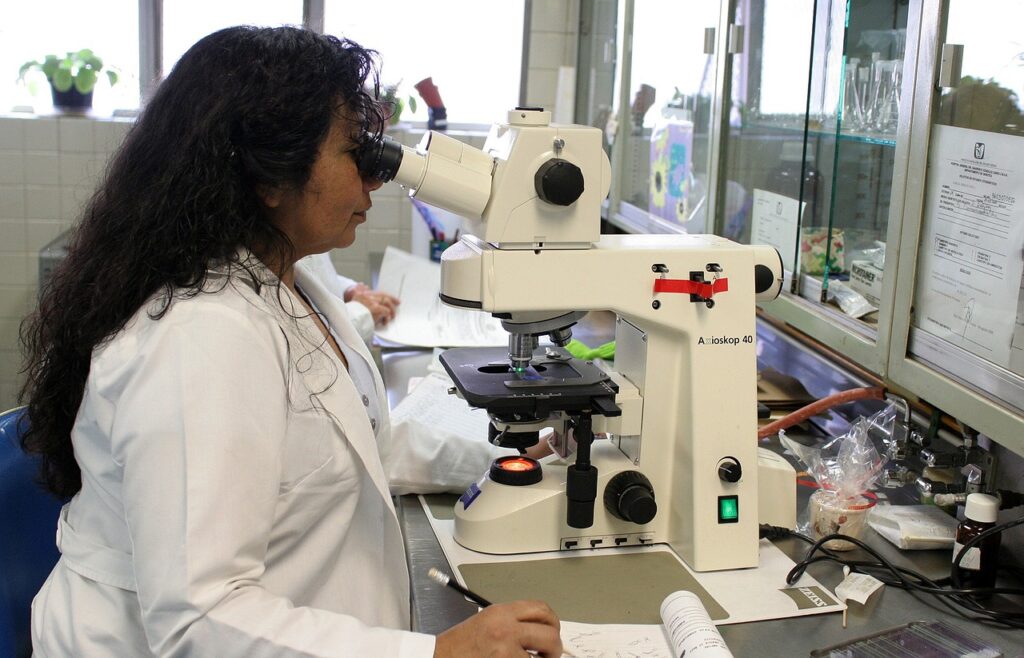If you’re looking for a rewarding career, want to use your love of science or math, mixed with a passion for service, can offer leadership in delivering healthcare to others, then the health and medical industry may be for you. With a massive array of job choices, allied health careers involve over 200 different jobs, and your passions could be leading you to one of them.

Top Allied Health Careers
Overview: What is the Allied Health Industry
Allied Health broadly describes a group of health professionals who make up over 200 health care careers in 80 different professions. While many health care professionals under the umbrella of healthcare may work at hospitals, clinics, rehabilitation, and doctors’ offices, a lot of them also work independently to evaluate and assess patients.
Allied health career professionals do everything from identifying, diagnosing, evaluating, and treating acute and chronic diseases and disorders, dietary and nutritional services, rehabilitation services, and other health systems’ management and operation. They also work to prevent disease and manage the health of those with chronic illnesses.
Is an Allied Health Career Right for Me?
If you’re goal-driven, a leader, self-starter, and motivator, or love helping patients overcome health challenges, then a career in healthcare may be right for you. You’ll come in contact with short and long-term patients who will rely on you to help them advocate for their health care and treatment. To help you decide if a career in allied health is right for you, a short self-test titled “Help Me Decide My Career In Healthcare” can be found on https://www.laboure.edu/quiz.
Before you start looking for schools to enroll in, there are other questions that you should ask yourself about working in the allied health field. Some of those questions are:
What is motivating you to pursue one of the many allied health careers?
Is it your passion to help others that have you thinking about healthcare? Do you like helping other people, or are you motivated by money? These are all excellent reasons, but healthcare is a complex business with high levels of stress.
How will you get the education for an allied health career?
There’s a ton of information online about degrees and training for various jobs in the medical field. Depending on your program, tuition can get costly. Are you ready to bet on yourself with the cost of tuition?
Do you have the skills and strengths for the healthcare industry?
You now know that there are several hundred different jobs in the healthcare field. Consider your communications, technical, and mathematical skills. Also consider if the sight of blood makes you queasy? Are you social? You will have to ask yourself if your skills are a fit for one of these careers.
What job in the healthcare field is most suitable for you?
Knowing if healthcare is suitable for you and really where your passion will help determine what’s best for you.
Where do you see yourself working?
Do you see yourself working alone or in a big hospital? If working alone moves you, then hospice care over a hospital may be best. If you love children, then pediatric nursing or a hospital nursery may suit you. Think about the environment that you find most desirable.
How will an allied health career impact your family and personal life?
If you have a family, compound that with a schedule that may take you away from home on weekends. Are you prepared for night and weekend work? Are you prepared to be on call or possibly relocate for a job?
Take the time to consider and deliberate on answers to these questions before determining with a career in healthcare is right for you.
Types of Allied Health Careers
Allied health careers can be broadly divided into diagnostic and therapeutic professions, and supportive professions. Diagnostic and therapeutic professions include medical laboratory technologists, radiologic technologists, physical therapists, and occupational therapists. These professionals play a vital role in the diagnosis, treatment, and rehabilitation of patients.
Supportive professions, on the other hand, ensure smooth functioning of the healthcare system by providing essential services. Some examples of supportive professions are medical assistants, pharmacy technicians, and health information technicians.
The diversity in careers in allied health is evident in the various settings and work environments available, such as hospitals, clinics, laboratories, and educational institutions. These careers also offer different levels of patient interaction, ranging from direct patient care to behind-the-scenes roles. Additionally, there are numerous opportunities for specialization within each profession, allowing individuals to tailor their career paths to their interests and strengths.
Education and Training Requirements
Education and training requirements for allied health careers vary depending on the profession. Certificate and diploma programs, typically completed within one year, provide foundational knowledge and practical skills for entry-level positions. Examples of careers requiring certification include medical assistants and pharmacy technicians.
Associate degree programs, usually completed in two years, offer a more comprehensive education in specific allied health fields. Careers requiring an associate degree include radiologic technologists and health information technicians.
Bachelor’s and advanced degree programs provide in-depth knowledge and specialized skills in particular areas of allied health. These programs can take four or more years to complete and are often required for careers such as physical therapists and occupational therapists.
Regardless of the level of education, accreditation and licensure are crucial factors to consider. Accredited programs ensure quality education and training, while licensure demonstrates that professionals have met state and employer requirements. Thus, pursuing accredited programs and obtaining licensure are vital steps in building a successful allied health career.
Job Outlook and Salaries for Allied Health Careers
Several factors influence job growth in allied health careers, including the aging population and increased demand for healthcare services. Additionally, advances in medical technology contribute to the need for skilled professionals in this field. As a result, many allied health careers are projected to experience significant growth in the coming years.
Projected job growth rates for various allied health careers vary depending on the profession. However, overall, the outlook for these careers remains positive, with many opportunities for growth and advancement.
Salaries and benefits for allied health careers depend on factors such as education, experience, and geographical location. The range of salaries for different allied health careers reflects the diversity of the field and the varying levels of education and training required. Understanding these factors can help individuals make informed decisions about their career paths and potential earning potential.
Tips for Success in Allied Health Careers
To succeed in allied health careers, it is essential to choose the right career path. Assessing personal interests and skills, as well as researching various careers in allied health, can help individuals make informed decisions about their future. Additionally, networking and professional development play crucial roles in career advancement. Joining professional organizations and attending conferences and workshops are excellent ways to build connections and expand knowledge.
Staying current with industry trends and advancements is vital for staying competitive in the field. Pursuing continuing education opportunities and reading industry publications and research can help professionals remain up-to-date on the latest developments in their areas of expertise.
Finally, balancing work and personal life is essential for overall well-being and career satisfaction. Managing stress and burnout, along with prioritizing self-care, can help ensure long-term success in allied health careers.
Allied Health and Healthcare Careers
As stated above, there are too many to list jobs in healthcare. However, below is a list and synopsis of information on some of the more popular career training healthcare jobs.
Speech Language Pathologist
A Speech Language Pathologist is responsible for assessing, diagnosing, treating, and helping prevent communication, speech and swallowing disorders in both children and adults. Speech Language Pathologists are specifically interested in helping people work on some of the following issues:
- Stuttering
- Communicating with others in social situations (especially for autistic kids)
- Articulating words and how those words sound when strung together
- Communicating what one is thinking
- Helping people with swallowing and feeding issues
- Audiology
- Working with clients who have suffered from a stroke or those who are experiencing dementia.
It’s a good career for someone who is interested in helping people communicate to their fullest capacity and wants to help those with speech impediments, such as stuttering, overcome those challenges. Speech Pathology has been ranked by US News Careers as the 4th best allied health job in the US
What Skills Do You Need to Be a Speech Language Pathologist?
Some skills necessary to become a speech-language pathologist are communication skills, compassion, critical thinking, detail-oriented, excellent listening skills, and patience. Because communication is at the very core of everything we do and having a high-quality life, it can be frustrating if you’re unable to communicate effectively. Your clients or patients may become frustrated which is why patience is a must-have for aspiring speech-language pathologists.
Pathways into Speech Pathology
While the median salary in 2022 was around $84,140, an SPL’s salary will differ based on work environment, education, experience and location. The speech pathology profession is expected to grow by 19% through the year 2032. This career growth is much higher than other healthcare professions. This is in large part due to the aging population, who might be experiencing dementia, and autistic children who may need help communicating and socializing with their peers.
Diagnostic Medical Sonographer

A Diagnostic Medical Sonographer, also called a sonographer or ultrasound technician, uses imaging equipment and sound waves to form many different body images called ultrasounds. They help doctors diagnose diseases and medical conditions. They are able to read these images and understand the difference between normal imaging and those images that might show that disease is present.
Sonographers can specialize in areas that focus on performing ultrasounds on a specific age group, organ or area of the body. Some specializations include the following:
- Abdomen
- Breast
- Heart
- Pediatric
- Musculoskeletal: focuses on muscles, tendons and joints
- Vascular: focuses on blood vessels
- Female Reproductive System
This career is great for someone interested in the medical field but wants a safe, non-invasive, and low-risk job. It’s also great for someone who has an interest in science, specifically anatomy and physiology.
What Skills Do You Need to Be a Diagnostic Medical Sonographer?
Some of the necessary job skills that sonographers will learn or should have include:
- how to operate the equipment needed to perform an ultrasound
- determining whether an image is usable or unusable
- how to provide written summaries for doctors
Additionally, sonographers should exhibit good hand-eye coordination to move equipment on the patient’s body in correspondence to what appears on the screen. They should also have the stamina to stand for long periods. Sonographers should be able to communicate well with patients and be able to answer any questions a patient has about the procedure.
Pathways into Medical Sonography
Education and Training
Schools offer both associate and bachelor’s degrees, as well as one-year certificate programs in sonography for persons already trained in another healthcare field. In order to become a Diagnostic Medical Sonographer, you’ll need a minimum of an associate degree.
Schools that offer programs in Diagnostic Medical Sonography or Ultrasound Technology include allied health schools, trade schools and community colleges. Programs should be accredited by the CAAHEP (Commission on Accreditation of Allied Health Education Programs). Program accreditation will ensure that the sonography program meets the guidelines and standards of the profession.
Certification and Licensure
While some states may require certification or licensure, other states do not have any licensure requirements to practice in this field. In order to be eligible for certification, you will need to have completed and graduated from an accredited program. Eligible sonographers have the option of receiving certification from any one of the following:
- American Registry for Diagnostic Medical Sonographers
- American Registry of Radiologic Technologists
- Cardiovascular Credentialing International
When you earn your certification in one or more specialized areas such as vascular sonography, you’re able to demonstrate that you have advanced knowledge in your specialization.
Work Environment
Sonographers may work in hospitals, doctor offices, or other specialized medical or imaging centers such as breast care centers or cancer centers.
Career Outlook
The career outlook for Diagnostic Medical Sonographers or Ultrasound Technicians is very promising. Jobs are expected grow by 10% through the year 2032, which is in large part due to the aging population.
Medical Billing Specialist
A medical billing specialist helps the healthcare facility manage insurance claims, invoices, and payments. It includes properly coding services, procedures, diagnoses, and treatments. They also prepare and send invoices or claims for payment. A medical billing specialist will determine which universal codes should be applied for conditions and treatments and bill patients and insurance companies for services the patient used.
This career is great for someone who is interested in the medical field but doesn’t want to necessarily be on the front lines.
What Skills Do You Need to Be a Medical Billing Specialist?
Those interested in a career in medical billing and coding should have great attention to detail, and excellent communication and customer service skills. They should also have the ability to problem-solve and good computer skills.
Some of the skills you’ll learn and knowledge you’ll acquire while training for a job as a medical billing specialist include:
- accounting and bookkeeping
- medical terminology
- billing systems
- health insurance
- medical records
- pathology
- pharmacology
Pathways into Becoming a Medical Billing Specialist
Education and Training
Most medical billers and coders entering the profession hold a two-year degree, although an associate’s degree is not a requirement to become certified. Minimum degree requirements will likely depend on your future employer. Medical Billing and Coding programs may be available at trade schools, community colleges and some 4-year colleges and universities, in the form of either certificate, diploma, or associate’s degree.
Depending on the program, institution and course availability, you may be able to complete your program in as little as 12 months.
Certification
There are three different certifications available to those aspiring to become a Medical Billing and Coding professional – CPC, CPA and CBCS. For each of the certifying exams, you’ll need a minimum of a HS diploma. Each exam has its own unique benefits. The exam you take will likely be influenced by the career path you choose. Additionally, some schools and programs may prepare you more for one or another exam. Here’s a breakdown of the three exams:
CBCS – Certified Billing & Coding Specialist
- offered by the NHA: National Health Career Association
- intended for those seeking a career in insurance
- focuses on insurance claims
CPC – Certified Professional Coder
- offered by the AAPC: American Academy of Professional Coder
- most common exam and certification in the medical billing and coding industry
- focuses on outpatient coding
CCA – Certified Coding Associate
- offered by the AHIMA: American Health Information Management Association
- focuses on record-keeping and compliance procedures
Work Environment
Medical Billing Specialists may work in hospitals, doctor offices, insurance companies or remotely at home.
Career Outlook
Medical Billing and Coding jobs are expected to grow by 8% which is much faster and higher than most healthcare professions. Average salary in the US is around $47,180.
Medical Assistant

A medical assistant, also known as a healthcare assistant, is an healthcare professional who supports physicians, physician assistants, and other health professionals, usually in a clinic or doctor office setting.
A career in medical assisting is perfect for someone who loves interacting with patients, doctors and nurses but doesn’t want to commit to medical school or have the responsibilities of most doctors and nurses.
Medical Assistant Responsibilities and Skills
The skills needed to be a medical assistant are attention to detail, empathy, communication skills, stamina, being organized, and time management skills. Some responsibilities that a medical assistant has will depend on their work environment with the most common clinical and administrative responsibilities being some of the following:
- Patient correspondence
- Updating medical records
- Insurance and billing duties
- Patient intake
- Answering questions about treatment procedures and providing explanations of those procedures
- Drawing blood
- Cleaning and bandaging cuts and wounds
- Helping nurses and doctors with routine exams and procedures
Pathways into Medical Assisting
Medical Assistant Education and Training
A certificate, diploma or associate degree program in medical assisting are the most common education path for a career as a medical assistant. Some medical assistants take a certification exam after graduating from an accredited program. Medical Assisting programs can be found at trade schools, community colleges and 4-year institutions. Most programs can be completed in less than 12 months.
Most programs will prepare you to the enter the profession as an entry level Medical Assistant where you’ll gain industry knowledge and learn the following:
- Medical Terminology
- Clinical and Surgical Procedures
- Electrocardiography (EKG)
- Bodily Fluid Collection and Procedures
- Pharmacology
- Human Diseases
- Medical Emergencies and Procedures
Certification
Many medical assistants may apply for certification by completing the CMA exam after completion of an accredited program. While not required to enter the profession, may employers may require medical assistant certification.
Work Environment
Medical assistants work in hospitals, nursing homes, clinics, doctor offices.
Career Outlook
The career outlook for this profession is one of the most promising in the healthcare industry. This is likely due to the growing aging population and the need for more doctor assistance. Medical Assistants might be taking over some of the more routine duties that doctors would typically perform during visits and exams. There are many reasons to become a medical assistant, and one of them being the expected job growth. The profession is expected to grow by 14% through 2032. The median annual salary for Medical Assistants is $38,270.
Physical Therapy Assistant

Physical Therapy Assistants, sometimes called PTAs, work under a physical therapist’s direction and supervision. They help patients who are recovering from injuries and illnesses to regain movement and manage pain. This is a great career for someone who would like a fast track into the physical therapy field without the education commitment required for Physical Therapists. Some may actually be considering a career as a Physical Therapist at a later time in their lives.
Physical Therapy Assistant Skills and Responsibilities
The skills necessary to become a physical therapy assistant may include
- active listening
- team-oriented
- good communication skills
- leadership skills
- critical thinking
- service-orientation
- multi-tasking
Some of the duties you’ll be responsible for include:
- Supervising physical therapy aides
- Helping patients work through exercises
- Assistant the Physical Therapists during patient sessions
- Billing and coding procedures
Pathways into Physical Therapy
Education and Training
In order to become a Physical Therapy Assistant, you must obtain an associate’s degree from an approved accredited program. In fact all states, except CO and HA, require that you have an associate’s degree making it one of the most nationally regulated healthcare trade fields. Physical Therapy Assistant programs can be found at trade schools, community or county colleges and 4-year colleges and universities.
Some of the knowledge you’ll gain during the program may include:
- Anatomy and Physiology
- Exercise Techniques
- Billing and Coding
- Kinesiology
- Orthopedics
- Cardiovascular and Pulmonary Systems
- Neurological Disorders
Certification and Licensure
All states require that PTAs be licensed. There is a national exam for licensure called the NPTE which is short for the National Physical Therapy Exam. Passing the exam will result in licensure.
Work Environment
Physical therapy assistants work in physical therapy offices, gyms, orthopedic offices, rehabilitation centers, nursing homes and hospitals.
Career Outlook
Physical Therapy Assisting is one of the fasting growing careers in healthcare. The job outlook is expected to grow by 19% through 2032. PTAs have a median average salary of $57,240 in the US.
Dental Assistant

A Dental Assistant prepares and organizes tools needed by dentists to work on a patient’s mouth. They have many tasks, including patient care, record-keeping, and appointment scheduling. Their duties vary by state and by the dentists’ offices in which they work and include assisting on procedures that patients have in the office. Some Dental Assistants may perform routine dental cleanings and take x-rays of a patient’s mouth.
This career is great for someone interested in oral health care and working with people, but don’t necessarily want to complete the extensive training and education required by Dentists.
Dental Assistant Skills and Responsibilities
Skills needed to become a dental assistant are excellent organizational skills, detail-oriented, good dexterity, professional demeanor, wonderful listening skills, compassion, ability to multitask.
A Dental Assistant’s responsibilities may include:
- Assist Dentists in tool preparation
- Patient intake
- Perform dental cleanings
- Provide important information about dental health and maintenance
- Take impressions of teeth
- Take and develop pictures of x-rays
Pathways to becoming a Dental Assistant
Education and Training
Education requirements will vary by state. However, dental assistants must have at least a high school diploma and be certified. Trade schools and community colleges offer Dental Assistant programs. Most programs culminate in a diploma or certificate.
For those who do not have any education in dental assisting may be able to receive on-the-job training in order to qualify for employment.
Certification
There are 2 certifications available for Dental Assistants:
- NELDA which is the National Entry Level Dental Assistant Certificate. In order to be eligible for the NELDA certification, you’ll need to have completed one of three dental assisting programs.
- DANB which is the Dental Assisting National Board Certificate. To be eligible for the DANB certification, you must complete a CODA-approved training program.
Work Environment
Dental assistants work in dental offices or they may even teach if they have the appropriate certification and training to teach at the vocational school or community college level.
Career Outlook
Dental Assisting is expected grow by 7% through 2032 which is lower than other healthcare careers. The average median salary for Dental Assistants is around $44,820.
Respiratory Therapist

Respiratory therapists are medical professionals who treat problems with the lungs or breathing complications such as asthma, emphysema and chronic pulmonary disease (COPD). Although not doctors, they work closely with doctors to diagnose and monitor your condition.
This is a growing health care field providing a rewarding professional work environment, competitive salaries, opportunities for continued learning, and the satisfaction of knowing that you’ve made a difference in the lives of those in your care.
Respiratory Therapist Skills and Responsibilities
The most common skills that are seen in respiratory therapists include compassion and understanding, detail-oriented, ability to communicate well, patience, the ability to problem solve and analytical skills. Responsibilities on the job may include:
- Patient Intake
- Use of ventilators
- Diagnose ailments and prescribe treatment plans for patients
- Testing lung capacity
- Providing information on lung health
Pathways into Respiratory Therapy
Education and Training
To be eligible to become a respiratory therapist (RT), you’ll need to graduate from an accredited program and obtain either an Associate’s Degree in Respiratory Care or a Bachelor of Health Science in Respiratory Care. Respiratory Therapy programs are offered at vocational schools, county colleges and 4-year colleges and universities.
Some of the courses you may take during your program include Medical Terminology, Life Support, Respiratory Care Practice and Issues, Adult Care, patient Assessment and Pediatric Care
Licensure and Certification
Respiratory therapists can become licensed in their state as well as complete a national certification. Each state has their own requirements for licensure. The NBRC offers two certification levels: Certified Respiratory Therapist (CRT) and Registered Respiratory Therapist (RRT). Most, if not all, states will require RTs to be CPR-certified.
Work Environment
Respiratory care professionals work in hospitals, specialized pulmonary care doctor offices, nursing homes or rehabilitation centers.
Career Outlook
Jobs in respiratory therapy are expected to grow by 13% through 2032. This spike in job growth is likely due to the aging population who tend to have higher cases of pneumonia and COPD. Salary will depend on education, experience, and location. The national average salary is around $70,540.
Operating Room Technician
An operating room technician is also called a scrub, scrub tech, or surgical technician. They work as part of the team delivering surgical care to patients. If helping prepare the operating room for surgery and helping maintain a sterilized room, becoming an operating room technician may be for you.
Operating Room Technician Skills and Responsibilities
The skills necessary to become an operating room technician are excellent communication skills, exceptional agility, not squeamish, willingness to learn, calm nature, ability to work in groups and the ability to stand for long periods of time.
Some of the tasks you’ll be responsible for include:
- Assist doctors during surgery or procedures
- Assist patients before and after surgery
- Sterilizing the operating and exam rooms
- Handling instruments
- Patient follow ups
Some operating room technicians may choose to specialize in a specific area such as plastic surgery, neurosurgery or orthopedic surgery. Yours responsibilities and tasks may be more specialized if you choose something outside of general surgery.
Pathways into Operating Room Technology
Education and Training
To become a qualified operating room technician, you need to complete a program in surgical technology. Schools offer programs at the certificate, diploma and associate degree levels. Certificate and diploma programs can take less than a year, while an associate degree program takes less than two years. You can find these programs at vocational schools, county colleges and hospitals. Many programs will require one or two practicums.
During your program, you’ll study the following topics:
- Surgical procedures
- Pharmacology
- Surgical Instruments
- Medical Terminology
- Instrument Handling
Certification
While not required to become an operating room technician, certification is recommended in order to land a job. Additionally, each certification dictates what you can list as your job title. There are two certification boards: The National Board of Surgical Technology and Surgical Assisting and The National Center for Competency Testing. Both have different continuing education requirements that you must complete in order to maintain in good standing.
Work Environment
An operating room technician may work in hospitals and surgical centers.
Career Outlook
Operating room technician jobs are expected to grow by 5% through 2032. The average annual salary for operating room technicians is around $56,350.
Physician Assistant

A Physician Assistant (PA) is a professional who diagnoses illness, develops and manages treatment plans, prescribes medications, and often serves as a patient’s principal healthcare provider.
If you are driven and can be as effective as a doctor and don’t want to go through the grueling educational requirements, this might be the perfect career for you.
Physical Therapy Assistant Skills and Responsibilities
Some of the skills you’ll need as a Physician Assistant includes:
- being emotionally stable
- dependability
- ability to work well with others
- attention to detail
- ability to work well independently
- compassionate
- be adaptable
- have great problem-solving skills
- work well under pressure.
Similarly to other healthcare professions, PA’s may decide to focus on a specialty within the medical field. Some of these specialties include obstetrics and gynecology, cardiology, ENT, neurology, pediatrics, gerontology, dermatology or primary care.
Your responsibilities will depend on your specialty and patient needs. Some of the daily responsibilities that you may be required to perform as a Physician Assistant include:
- Conduct intakes and assessments
- Interpreting tests
- Prescribing medication
- Billing
- Review medical records
- Perform physical exams
- Suturing
Pathways into a Career as a Physician Assistant
Education and Training
In most cases, you must complete an accredited Physician Assistant masters’ program from an accredited institution. There are over 260 programs available today. These programs a very competitive and only have a limited number of seats available to incoming students each academic year. You can choose to attend school full-time or part-time and can take a minimum of 3 years to complete. The Physician Assistant program is structured similarly to that of a medical school and is very intensive. You’ll be required to complete a course in nearly every specialty, as well as complete a clinical clerkship for credit at the end of the program.
Licensing and Certification
In order to practice as a Physician Assistant, you must pass the PANCE licensing exam. In order to maintain certification, PA’s must complete continuing medical education every two years and get re-certified every ten years.
Work Environment
Physician assistants work in hospitals, clinics, doctors’ offices, urgent care facilities or they may choose to work independently.
Career Outlook
Physician Assistant careers are expected to grow a whopping 27% through 2032. This growth is due to the need for healthcare services in both general and specialty practices. A Physician Assistant’s salary will depend on their location, experience level and whether they work in a private or public facility. Their salary may also be influenced by their specialty. According the BLS, the average salary through 2032 is around $126,010.
Pharmacy Technician

A Pharmacy Technician handles the pharmacy tasks, such as providing customer service, processing prescription insurance claims, and filling prescriptions.
A pharmacy tech wants to be in the medical field but deal with the science and math part, not diagnose and assess patients.
Pharmacy Technician Skills and Responsibilities
A pharmacy technician must be able to stand on their feet for long periods of time, they should have good communication skills, have great attention to detail, be able to multitask, have the ability to problem-solve, use critical thinking skills, and be proficient in math.
Some of the responsibilities you’ll have as a Pharm Tech include:
- Purchasing supplies
- Faxing and filling prescriptions
- Data entry
- Contact patients
- Prepare medications
- Take inventory of pharmaceutical supplies
Pathways into Pharmacy Technology
Education and Training
Most Pharmacy Technicians must have at least a high school diploma. Some jobs may require completion of an approved Pharmacy Technician diploma or certificate program. These programs are usually offered at vocational schools and can be completed in as little as 9 months. Completion time may vary depending on school and personal obligations.
Certification
Many states require that Pharmacy Technicians pass a state licensing exam leading to a Certified Pharmacy Technician License (CPhT). Some states may also require that you’re registered with the state’s Board of Pharmacy. You’ll need to check your state‘s requirements prior to enrolling in a program to make sure that you’re on the right path to becoming a Pharmacy Technician.
Work Environment
Pharmacy technicians work in local drugstore pharmacies, grocery store pharmacies, independent pharmacies or insurance companies.
Career Outlook
The Pharmacy Technician profession is expected to only grow by 6% through 2032. A Pharmacy Technician’s salary will depend on location. The average salary for this profession is $37,790 per year.
Registered Dietitian

A Registered Dietitian (RD) is a person who advises others on matters of food and diets and their impacts on overall health, specifically preventing and treating health issues. They genuinely care about the dietary needs of others and likes to inform for preventive and maintaining health. They work with people at many different age levels and with many different needs. Some clients they might work with may be seeking help with weight loss or may have other medical needs such as those with high blood or those who may have recently suffered from a heart attack. They may also work with diabetics, athletes, or people who are just seeking some guidance on healthy eating habits.
Registered Dietitian Skills and Responsibilities
A registered dietitian must have good communication skills, be non-judgmental, show compassion and willing to meet people where they are. RD’s must be ready to change lives from the inside out. Therefore, they must be able to motivate people as they work hard to make changes to their existing lifestyle.
Some of your daily responsibilities may include:
- Performing assessments for new and existing patients
- Ensure patients are following their established dietary plans
- Oversee weight management of patient
- Review any changes to existing nutritional plans
- Conducting workshops to educate people on nutrition and healthy lifestyles
Pathways into a career as a Registered Dietitian
According to the Commission on Dietetic Registration, there are 3 pathways into becoming a registered dietitian. Each involves some level of formal education and completion of an ACEND approved internship or coordinated program.
Education and Professional Requirements
Education
As of January 2024, anyone seeking to become a registered dietitian will need a minimum of a master’s degree to enter the field. You will also be required to complete an ACEND-accredited master’s degree or doctorate.
Supervised Practice
Part of the pathways to becoming a registered dietitian includes completing 1200 hours of supervised practice. This can be in the form of an internship or completion or a coordinated program. Both the internship and coordinated program must be approved by ACEND.
If need a list of schools that offer accredited programs and internships that will help you on the path towards becoming a registered dietitian, eatrightpro.org offers a comprehensive directory of approved programs.
Becoming Registered
In order to qualify to sit for the Registered Dietitian (RD) exam, you will be required to complete an ACEND-accredited master’s degree or doctorate degree. The RD exam is the exam that leads to becoming registered.
Work Environment
Registered dietitians might work in hospitals, doctors offices, schools, or they might work independently as consultants or in their own practice. They may also work in professional sports programs helping athletes lose weight, gain weight or help them develop a dietary plan that will aid in their overall growth and physical needs.
Career Outlook
Careers in the Dietitian and Nutrition are expected to grow by 7% through 2032. While a registered dietitian’s salary will vary based on location and experience, the median annual salary is $66,450.
Veterinary Technician

Veterinary technicians help care for animals seeking medical attention. Whether the pets are in for a routine checkup or for an emergency visit, Veterinarian Techs are usually the first ones to see pets when they come into a veterinarian’s office. They use medical knowledge and clinical skills to provide routine and emergency nursing care under the supervision of a licensed Veterinarian in animal hospitals. Vet Techs may also work or volunteer their time in animal shelters. Veterinary Technicians love animals and want to help in their care and treatment without the educational requirements needed to become of Veterinarian.
What are the Responsibilities of a Veterinarian Technician?
A Vet Tech’s responsibilities includes a variety of soft skills, hard skills, clinical tasks, and animal handling. Most hard skills you’ll learn in school, while soft skills should come naturally to you. Some of a Vet Tech’s daily responsibilities might include:
- Patient intake and information gathering including reason for visit and information about any changes in behavior
- taking important vitals such as weight and blood pressure
- prep animals for surgery
- collect animal’s stool samples
Some of the soft skills a Vet Tech must have include excellent communication skills, compassionate towards animals and their human caretakers and an ability to listen.
Pathways into Vet Tech
Vet Tech Requirements
A veterinary technician should hold an associate degree from a two-year college or have completed an approved accredited Veterinarian Technician training program. Most states will require that you complete the VTNE exam to qualify for employment as a Veterinarian Technician. Aspiring Vet Tech’s must pass the VTNE exam in order to be credentialed as a Vet Tech. Licensing requirements vary by state so be sure to check your state’s requirements prior to enrolling in any program so you can be sure you’re completing the right training program.
There are also many vet tech specializations that you could pursue that may require additional training.
Vet Tech Training Programs
Vet Tech training programs are offered through vocational schools either online or on campus. They provide hands-on training where you’ll work with animals in kennels or local animal hospitals. Programs in veterinarian technology cover a variety of animal and scientific topics including animal anatomy, animal nutrition, radiography for vet techs, biology and animal pathology. Most programs can be completed within 18-24 months. Vet Tech programs must be AVMA (American Veterinarian Medical Association) accredited so that you are eligible to take the VTNE exam.
Allied Health Industry Outlook
The future is full and bright for those interested in a career in healthcare. According to the U.S. Bureau of Labor Statistics, healthcare is projected to add more jobs than any other occupation groups, which is due to the aging population and the need for these services. The median annual salary for Vet Techs in 2022 is around $38,240. Healthcare workers are at the front lines during health crisis.
